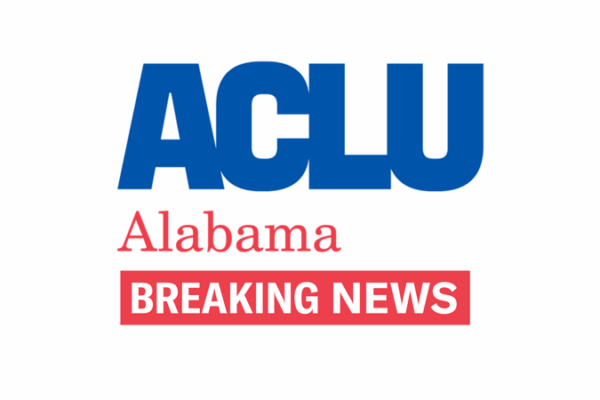WASHINGTON D.C. — The Supreme Court announced today that it will not review an Eleventh Circuit Court of Appeals decision that unanimously struck down an Alabama abortion restriction. The law was challenged by the American Civil Liberties Union (ACLU) and ACLU of Alabama on behalf of abortion providers and their patients.
The restriction made it a crime for physicians to provide dilation and evacuation (D&E) abortions, the only abortion method available in Alabama after 15 weeks of pregnancy. Despite opposition from leading medical experts including the American College of Obstetricians and Gynecologists, as well as losing at the federal district court and the Eleventh Circuit Court of Appeals, Alabama Attorney General Steve Marshall continued to defend this legislation.
Every similar ban that has been challenged has been blocked by the courts, including laws in Arkansas, Kansas, Oklahoma, and Texas. This ruling represents another costly loss over abortion by the state of Alabama, which will now have to pay the ACLU attorneys’ fees and litigation expenses. After the state of Alabama lost another case involving a law requiring abortion providers to have hospital admitting privileges, the state paid the ACLU and Planned Parenthood a combined 1.7 million dollars. The amount incurred in this case will likely exceed that amount.
Randall C. Marshall, Executive Director at the ACLU of Alabama:
"We are not surprised by the Supreme Court's decision to deny review in this case. In doing so, they are upholding the Supreme Court's own precedents dating back to 1973 in protecting a woman's right to access the healthcare she needs. A woman's health, not Alabama politicians, should drive personal medical decisions.
We have warned the state of Alabama that these lawsuits are likely to lose in court, but despite these warnings, the state has tried to insert government into overruling expert medical decisions. Now the state will have to pay millions of taxpayer dollars, at a time when the state is struggling to pay for education, rural healthcare, roads, prisons, and more."
Stay Informed
Sign up to be the first to hear about how to take action.
By completing this form, I agree to receive occasional emails per the terms of the ACLU’s privacy statement.
By completing this form, I agree to receive occasional emails per the terms of the ACLU’s privacy statement.

